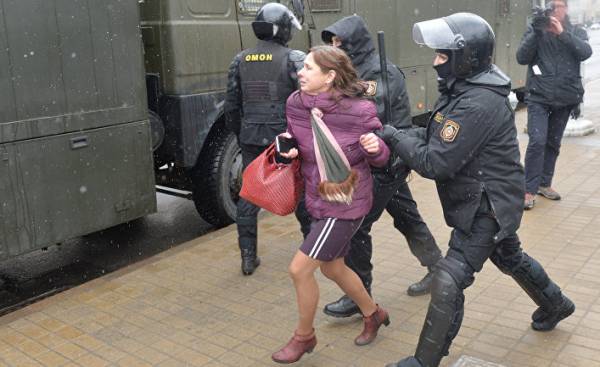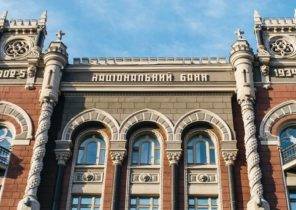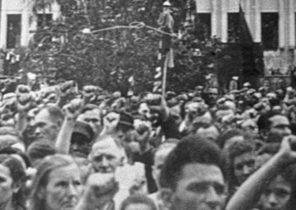
The friendliness of Belarusians every time amazes. Citizens of the country, dubbed the last dictatorship seem to be a mild contradiction of the cruelty of the authorities.
I will never forget my first encounter with this country 20 years ago.
I crossed the border with Latvia in the cab of the truck with humanitarian aid from Finland. We stood for many hours at the Belarusian customs, while I checked the contents of the truck. It was autumn, and it was quite cold. We were in the car for a day and a half. We were tired and annoyed.
Suddenly I was approached by a woman in a blue uniform.
She asked me to come with her. I then spoke Russian, so we spoke little. She took me to his office, which was in the annexe customs. There she warmed me food on a hot plate. I must have eaten her lunch.
While I was eating, she moved with a small sofa folders and stuff and turned on the TV.
“Now can you lie down here and rest,” the woman said with a soft commanding tone.
I don’t remember ever stranger cared about me in this way. I was grateful and very moved.
After hours of inspection, the truck was able to continue the journey and I thanked the cheerful Elena. Fortunately, I have had Finnish chocolate, and I was able to please her.
When I got into the car, she ran up and gave me a pink ballpoint pen. It has long been my lucky pen, and I often put her in the bag, but one day she got lost somewhere.
Elena was influenced by the fact that for Belarus in my heart there was a separate place. I sincerely hope that the Belarusians will ever be able to live in a prosperous democracy. Yet the path to it seems painfully slow.
In October 2000, I was in a small village in the South-East of Belarus, when the country held parliamentary elections. I chatted with two elderly women at the bus stop when we pulled up to the car from which three people got out. They performed an important task.
The men helped to hold elections — women from a remote village now also able to vote. The first man, dressed in a leather jacket and leather cap, was holding the ballot box. The second showed women the list of candidates and uttered a single name:
“I advise you to vote for him, he is a good man!”
The presence of foreign journalist don’t bother. I thought that it seemed absolutely natural to help unsure voters to make a choice.
The standard of living since my last visit to that country rose considerably. Here we go for modern Western cars, all great phones and fashionable clothes. Poverty, however, still a lot.
One thing, however, has not changed. You should not go against the country’s leadership. If you go against, it’s easy to abuse or go to jail.
Even after many attempts the opposition of Belarus were unable to obtain political support and to join forces.
I well remember seeing here the first small demonstration.
In the autumn of 2004 a small group of young people stood in rows on the Central square with hand-written placards with the requirements of democracy. In the spring of 2006 the country has held a Grand demonstration, which the police strongly dispersed. In December 2010, the people spoke again of reform and sought opportunities to influence decision-making. And then the police also dispersed the crowd in the middle of the night with force.
Every time people are put in prison, and the media interfere.
This winter in Belarus held large-scale demonstrations.
Now people are especially angry about the new law on the payment of fines if people are not working. The situation worsened in March, after a series of small demonstrations. The police acted in the same way as in previous years.
How many times can it all be repeated? How many more people will swallow the protests and criticise the government and President Lukashenko in the backyard or in the kitchen? Until, finally, they themselves will not get tired and decide to retreat?
And where it may lead? Scary, because the consequences can be devastating.







